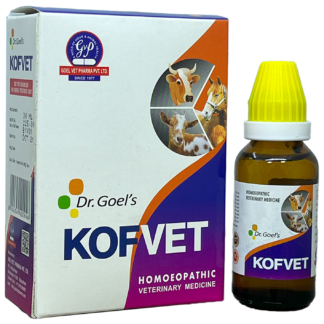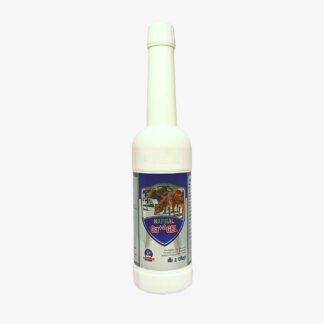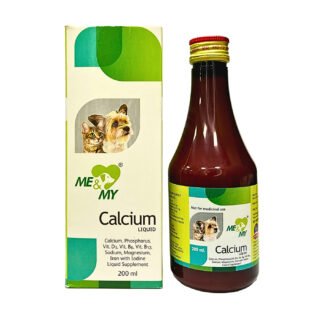Homeopathy 101 for Dog Owners: Understanding How it Works and When to Use It

Being a committed dog owner feels like venturing into the labyrinth world regarding medication. The number of available products, be it an over-the-counter painkiller or a prescription antibiotic, can be confusing. However, what if there was another way, an all-around approach to your dog’s well-being? Here comes homoeopathy, which is promoted as an ancient alternative medicine that is being discovered by pet parents who are looking for natural ways to treat their dogs.
Homeopathy practices highly diluted substances, which activate the body’s ability to heal naturally. This means that these diluted substances used in the preparation of dog medicine stimulate the immune to deal with various problems. Have you ever heard of dog medicine that utilises the natural potential of ingredients? This blog post is all about homoeopathy for dogs. We’ll look at the core theories, what the pros tend to be, and when it could be an excellent time to consider if not even choose, it instead of conventional dog medicine.
First and foremost, remember that homoeopathy is not the ultimate solution for every medical condition. Asking for the veterinarian’s advice is necessary when you want to give your dog any medicine, such as homoeopathic medicine. This blog provides you with the information you need to make conscious decisions about your dog’s health and welfare. We will investigate the potential of homoeopathy as a complementary treatment for your dog.
Understanding Homeopathy: The Like Cures Like Principle
Homeopathy, introduced in the late 18th century by the German physician Samuel Hahnemann, is based on the “law of similarity.” This law states that if a large dose of a substance can generate specific symptoms in a healthy individual, it can stimulate the body to cure those same symptoms when given to the person in a highly diluted form.
Homoeopathic remedies are manufactured from natural resources, including plants, minerals, and animal products. During this phase, the substances are serially diluted, intermittently diluting them in either water or alcohol and vigorously shaking them after each dilution time.
Despite the concept of “like cures like” being an unorthodox approach to those familiar with traditional medicine, homoeopathy has a big following among human and animal health practitioners.
Check Out Our Product : – CONSTIGO for PETS 30ML For Constipation Problems
Homeopathy vs. Traditional Veterinary Medicine: Understanding the Differences

- Focus: Traditional veterinary medicine is mostly associated with diagnosing and treating particular diseases that are effectively addressed through drugs, surgeries, and other interventions. Homeopathy applies to restoring the body’s natural healing abilities so that its symptoms are adequately eliminated.
- Treatment Approach: Conventional veterinary medicine commonly uses a precise approach that enables treating only certain symptoms with specific drugs. Homeopathy, on the other hand, is not focused on one or the other; it considers the whole animal (the physical, the emotions, and the mind) in its choice of remedy.
- Side Effects: Veterinary medicine commonly uses a targeted treatment method to treat ailments with specific medication. Homoeopathy, rather than being focused on one or the other, considers the whole animal (the physical, the emotional, emotional, and the mind) in its choice of remedy.
Homeopathic Dog Medicine: Potential Benefits and Considerations
Proponents of homoeopathy for dogs point to several potential benefits, including:
- Gentle and Natural Treatment: Homeopathy remedies are usually considered risk-free and light as their substances are diluted very much. This method is helpful for pet owners who want to do natural things for their dogs and avoid traditional drugs.
- Stimulating the Body’s Healing Response: Homeopathy is said to operate by stimulating the body’s natural defence mechanisms to heal itself, which might result in lasting effects.
- Addressing Acute and Chronic Conditions: Homeopathic remedies can be used to treat a variety of acute (short-term) and chronic (long-term) conditions in dogs, including allergies, skin problems, anxiety, arthritis, and digestive issues.
Essential Considerations Before Using Homeopathic Dog Medicine
While homoeopathy offers some potential benefits, it’s necessary to be aware of some key considerations:
- Limited Scientific Evidence: There is limited scientific evidence to support the efficacy of homoeopathy for treating specific medical conditions in dogs. Studies on the effectiveness of homoeopathy have yielded mixed results.
- Diagnosis and Treatment Plan: It’s crucial to consult with a veterinarian before using homoeopathic remedies for your dog. A vet can diagnose the underlying cause of your dog’s health concerns and develop a comprehensive treatment plan, which may or may not include homoeopathy.
- Not a Replacement for Traditional Veterinary Care: Homeopathy should not be used as a replacement for traditional veterinary care. Traditional veterinary medicine is essential for serious or life-threatening conditions.
Homeopathic Remedies for Dogs: Common Applications
Acute Symptoms: Homeopathy can help address a variety of short-term issues in dogs, such as:
- Minor digestive upset (diarrhoea, vomiting)
- Skin irritations (itching, minor allergic reactions)
- Anxiety (associated with travel, separation)
- Mild coughs and colds
Chronic Conditions: While not a cure, homoeopathy may offer some relief and support for managing chronic conditions in dogs, including:
- Arthritis (joint pain and stiffness)
- Allergies (environmental or food sensitivities)
- Ear infections (chronic or recurrent)
- Behavioural issues (like mild anxiety or fearfulness)
Important Safety Information about Homeopathic Dog Medicine

- Dosage and Potency: Homeopathic remedies come in various dilutions and potencies. To ensure safety and effectiveness, following the dosage instructions provided by a qualified homoeopathic veterinarian is crucial.
- Adverse Reactions: While generally safe, some dogs may experience mild side effects, such as temporary worsening of symptoms or digestive upset. If you notice any adverse reactions, discontinue use and consult your veterinarian.
- Homeopathic vs. Conventional Labels: Read labels carefully to distinguish homoeopathic remedies from conventional medications. Homoeopathic products typically list the substance used and the dilution level (e.g., Belladonna 30C).
- Not for Emergencies: Homeopathy is not intended for treating emergencies or life-threatening conditions. If your dog experiences sudden or severe symptoms, seek immediate veterinary care.
Finding a Qualified Homeopathic Veterinarian
If you’re interested in exploring homoeopathic options for your dog, it’s essential to find a qualified homoeopathic veterinarian. These vets have received additional training in homoeopathy and can work with you to develop a safe and effective treatment plan for your furry friend.
When Might Homeopathy Be a Good Option for Your Dog?
Here are some situations where homoeopathy might be an excellent option to consider for your dog alongside traditional veterinary care:
- Mild, Acute Conditions: For minor, short-term issues like anxiety during thunderstorms or mild digestive upset, homoeopathy might offer some relief.
- Supporting Traditional Treatment: Some pet owners choose to use homoeopathy alongside traditional veterinary treatments to potentially improve their dog’s overall well-being and recovery time.
Final Thoughts
Homeopathy is a novel approach to animal care, so we have another option to make the lives of our furry friends better and more joyous! Although traditional dog medicine offers a multitude of effective therapies, homoeopathy can play a critical role in dog health care.
Be aware that t homoeopathy will not resolve all your problems and is not a magic bullet. It’s essential to manage people’s expectations and be aware that there is enough scientific evidence for its effectiveness. Accordingly, mild or acute aggravation should strictly be used with conventional dog medicine to relieve your dog and help it regain strength.
The fundamental point in the line is to seek the help of an experienced vet. They will find the source of your dog’s problem and will come up with a round treatment plan that, let’s say, does or does not have homoeopathic remedies. Homoeopathy is never recommended as a substitute for the primary care of a veterinarian when it is a matter of seriousness or life-threatening conditions.
Homoeopathic medicine for dogs is one way to create a holistic healthcare routine that prioritises your dog’s well-being. Balancing this with veterinary care will lead to optimum dog health. Therefore, as you stroll through the dog medicine aisle, consider homoeopathy the perfect natural way to support your dog’s health.
Must read : – Senior Support: Homeopathic Remedies for Common Ailments in Aging Dogs
 Australian Shepherd
Australian Shepherd Beagle
Beagle Belgium Shepherd
Belgium Shepherd Bernese Mountain Dog
Bernese Mountain Dog Border Collie
Border Collie Boxer
Boxer Bulldog
Bulldog Cavalier King Charles Spaniel
Cavalier King Charles Spaniel Chihuahua
Chihuahua Cocker Spaniel
Cocker Spaniel Dachshund
Dachshund Doberman Pinscher
Doberman Pinscher Dogo Argentino
Dogo Argentino French Bulldog
French Bulldog German Shepherd
German Shepherd Golden Retriever
Golden Retriever Great Dane
Great Dane Himalayan Shepherd
Himalayan Shepherd Indie Dogs
Indie Dogs Labrador Retriever
Labrador Retriever Pakistani Bully
Pakistani Bully Pembroke Welsh Corgi
Pembroke Welsh Corgi Pitbull
Pitbull Pomeranian
Pomeranian Poodle
Poodle Pug
Pug Rottweiler
Rottweiler Shih Tzu
Shih Tzu Siberian Husky
Siberian Husky Yorkshire Terrier
Yorkshire Terrier Abyssinian
Abyssinian American Bobtail
American Bobtail American Shorthair
American Shorthair Balinese Cat
Balinese Cat Bengal Cat
Bengal Cat Birman
Birman Bombay Cat
Bombay Cat British Longhair
British Longhair British Shorthair
British Shorthair Burmese Cat
Burmese Cat Devon Rex
Devon Rex Exotic Shorthair
Exotic Shorthair Himalayan Cat
Himalayan Cat Maine Coon
Maine Coon Oriental Shorthair
Oriental Shorthair Persian Cats
Persian Cats Ragdoll
Ragdoll Scottish Fold
Scottish Fold Siamese Cat
Siamese Cat Siberian Cat
Siberian Cat Sphynx Cat
Sphynx Cat






































